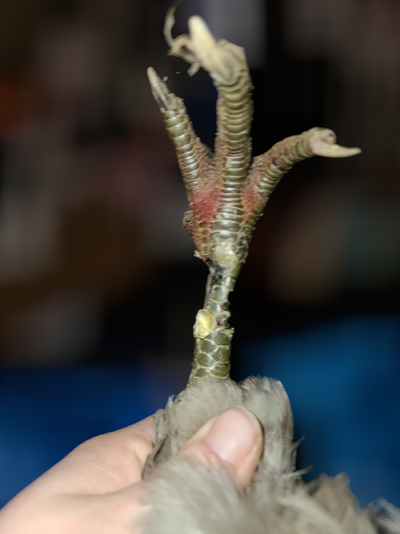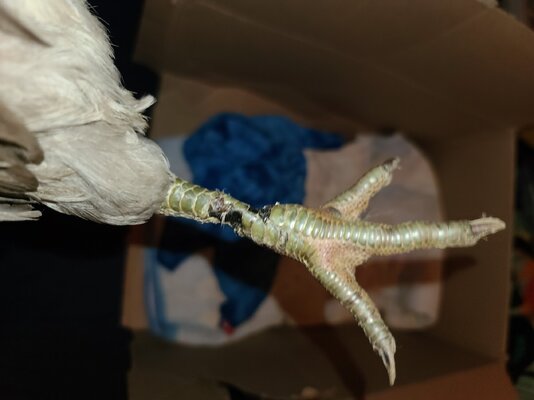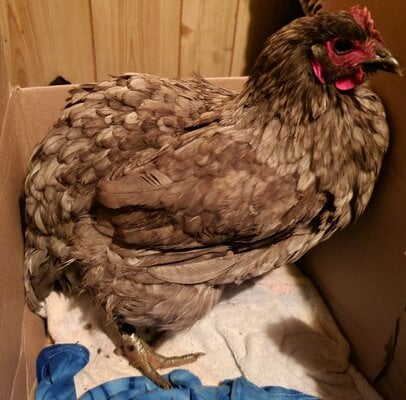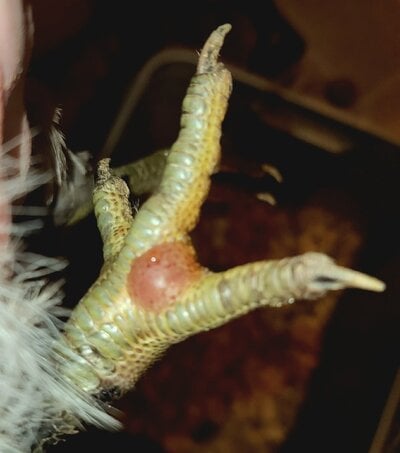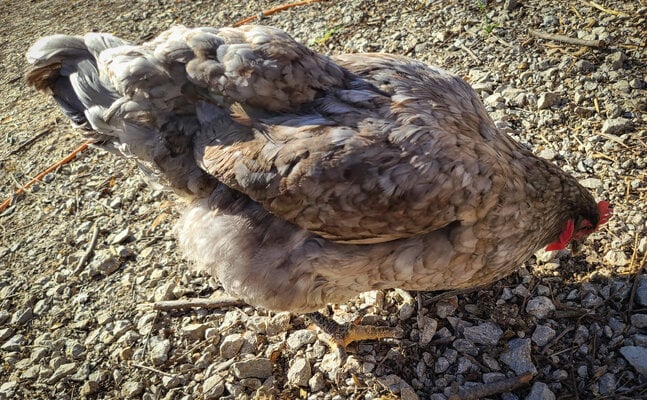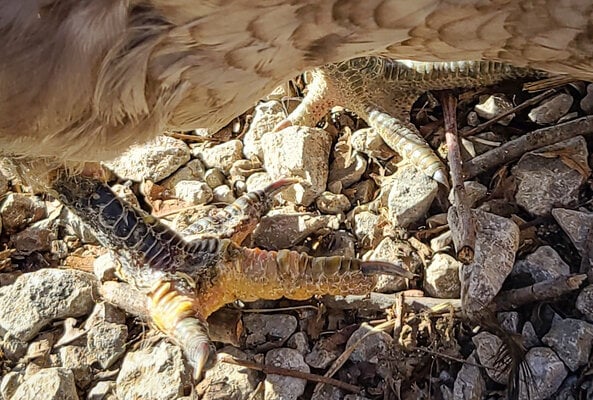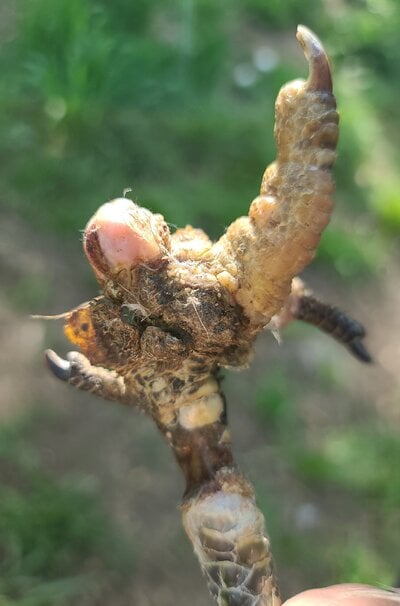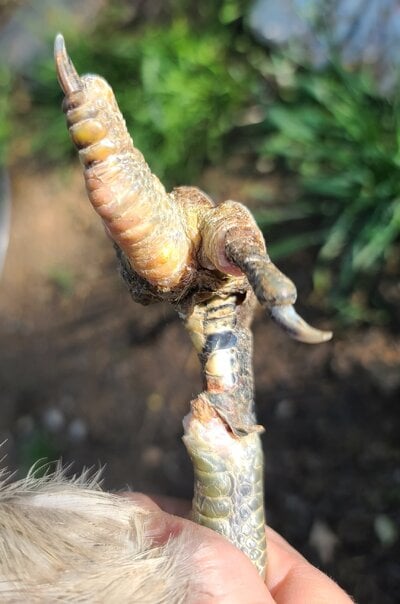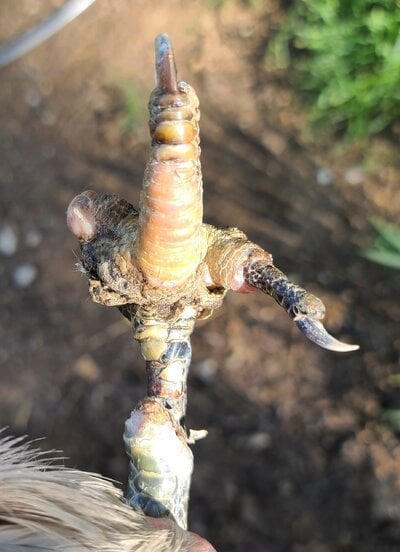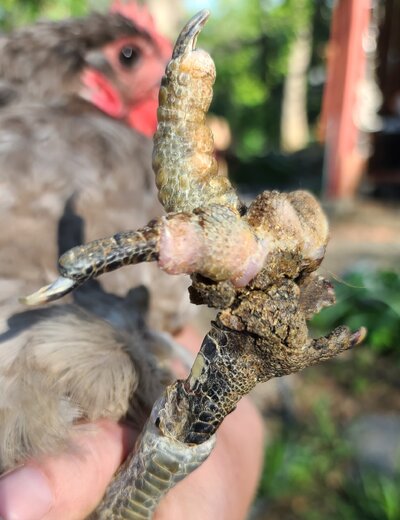mmwellsfarm
Chirping
- Aug 8, 2022
- 178
- 113
- 98
Last week we had subzero temps come through and we took precautions but one hen somehow got her foot caught in the door. When I found her it was frozen solid (like a rock). She was able to stand on it until a day ago when blisters startered. One popped and the other hasn't yet. I know there's a chance she'll lose her foot but she's a fighter and has been trying to keep moving about still. Unfortunately, I have to go out of town for a couple days and I don't have anyone who can watch her that knows what to do. Is there anything special I should do to keep her foot safe from infection while we're gone? Anything special in general I should do for her?

